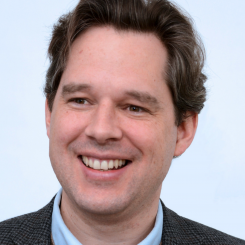May 19, 2021 - 11:00 AM - 12:30 PM Eastern Time (ET)
Scaling Infrastructure
for the Energy Transition
Event Description:
Credible scenarios to achieve decarbonization assume significant deployment of infrastructure in key sectors, including the power sector. This need for new – and resilient – infrastructure has been accompanied by mounting challenges, however. Public opposition and regulatory obstacles against large renewable energy projects and new transmission infrastructure have contributed to delays and project cancellations, which in turn result in the misallocation of investment and increase overall cost. Two experts on the topic – Dr. Patrick R. Brown, MIT alumnus and now with the National Renewable Energy Laboratory (NREL), and Dr. Stephen Jarvis of the University of Mannheim – will draw on recent research to highlight the importance of infrastructure and obstacles to its rollout in decarbonization of the electricity system.





